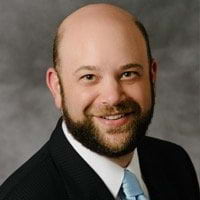What title issues do I need to worry about when buying a house?
What due diligence should you do when buying a residential property? What does the title insurance commitment mean and when should it be a concern to you? That is the point of this blog post.
To some, using an attorney for a closing is a necessity. Some people live in states where attorneys are the only option to buy or sell houses. In other states, Florida specifically, title companies mostly handle closings. Most attorneys that handle closings do so by owning a title company, a minority of attorneys handle closings as a department within their law firm.
Yesner Law, P.L. does not handle closings, and has no affiliation or ownership interest in any title company; we do network with a few great title companies if you want a referral.
There are three components to the Title Insurance Commitment, which the title company should prepare and send to the buyer prior to closing, typically at least 5 days prior to closing although it could be longer (or shorter) than that.
- Schedule A
Schedule A describes the specifics of the transaction: (a) who is the proposed insured owner and lender, (b) what is the purchase price and loan amount, (c) what is the effective date of the commitment, (d) what is the legal description of the property, and (e) who is the current owner(s) of the property?
Schedule A should be reviewed to make sure that the proposed owner and lender are properly described, that the contract price and loan amount are correct, that the legal description is correct and that the seller on the contract matches the owner of the property on public record. If any of these items are off you should ask the title company to verify the information, ask your realtor to verify the information, or if the issue is more than a mere typo you may want to seek legal advice (but that would be in an extreme scenario).
2. Schedule B-I
Schedule B-I describes all of the issues that need to be cleared up prior to closing. Schedule B-I contains conditions like: (a) proper execution of the deed conveying title, (b) proper execution of the lender’s mortgage, (c) satisfaction of the seller’s mortgage, and (d) obtaining any affidavits or other documents necessary to allow the seller to convey title to the buyer without liens or defects.
You should review Schedule B-I to make sure there are no uncommon issues. Are there any requirements from the homeowner’s or condominium association, or is there even an association? Are there multiple mortgages that need to be paid? Are there multiple judgments against the seller that need to be satisfied or paid? Again, if you find issues on Schedule B-I that raise questions, contact the title company, your realtor or an attorney.
3. Schedule B-II
Schedule B-II contains all of the exceptions to the title insurance once issued. Schedule B-II will describe: (a) any community restrictions, (b) the mortgage lien for the lender that loaned you the money to buy the house, (c) any issues revealed by a survey of the property, (d) any restrictions contained on the plat of the community, and (e) any easements for utility, access or other issues.
Since Schedule B-II describes exceptions to the title insurance, you should review this carefully. For example, if the association prohibits painting your house without permission, and you do paint the house causing the association to send a violation notice, the title insurance policy will not protect you. If the utility company digs up your yard to service a utility line, your title insurance policy will not protect you if the utility easement is referenced in Schedule B-II. However, if you get a letter than an heir from three owners back is making a claim to ownership of the property because his interests were not addressed in the previous owner’s probate, or if a bank from two owners ago files a foreclosure lawsuit, and there is no reference to either situation is listed in Schedule B-II, then the title insurance will cover those claims.
Again, as before, if you have questions on Schedule B-II, ask the title company to send you copies of the items listed on B-II for review, or talk to your realtor, or come to see a real estate attorney.
For more information on title, title insurance, or real estate closings, please contact us to schedule a free initial consultation to discuss your options at 813-774-5737 or email me directly at shawn@yesnerlaw.com. You can also order Crushing Debt: 9 Strategies to Eliminate Financial Bullies on Amazon.com. Please also subscribe to the Crushing Debt Podcast, on Apple Podcasts, Spotify, and other podcast players, including Amazon Echo (“Alexa”) for more free information about these topics.
Shawn M. Yesner, Esq., is the host of the Crushing Debt Podcast and founder of Yesner Law, P.L., a Tampa-based boutique real estate and consumer law firm that helps clients eliminate the financial bullies in their lives. We assist clients with asset protection, the sale and purchase of real property, Chapter 7 liquidation, Chapter 13 reorganization, bankruptcy, foreclosure defense, debt settlement, landlord/tenant issues, short sales, and loan modifications in Tampa, Westchase, Odessa, Oldsmar, Palm Harbor, Clearwater, Pinellas Park, Largo, St. Petersburg, and throughout the greater Tampa Bay Area.




